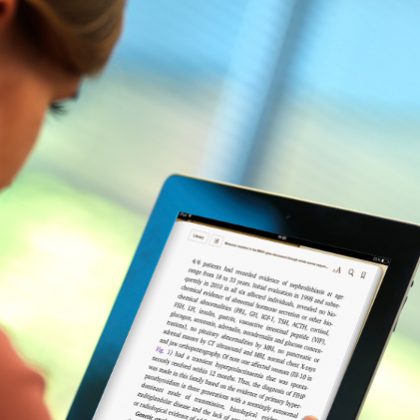Applied Psycholinguistics welcomes new Editor
The journal Applied Psycholinguistics is pleased to welcome a new Editor, Melissa Baese-Berk, from January 2024. The new Editor shares some thoughts about the history and future of the journal below.
Q1: What’s your history with Applied Psycholinguistics?
I’ve been a long-time reader of Applied Psycholinguistics which has published lots of articles that have been really important to me and to the field. I served as a reviewer for many years and finally published my first paper in the journal in 2023!
Q2: What future directions (or initiatives) are you most looking forward to explore for Applied Psycholinguistics in the coming years?
Dr. Rachel Hayes-Harb, the outgoing editor, did a wonderful job of championing open science and increased access and equity through the journal (including the wonderful double special issue last year co-edited with Dr. Ethan Kutlu). I’m really looking forward to continuing those initiatives. I’m cooking up a couple of special issue ideas in the area of open science and am also excited to explore alternative article types so that we can welcome diverse perspectives to the journal.
I’m also excited to explore ways we can enhance the peer review process to encourage formative, substantive, and equitable reviews. We’re exploring ways to help reviewers and editors in their positions at the journal, and to provide training opportunities for individuals interested in exploring how to make the peer review process more equitable.
Q3: What types of research are you hoping to publish in Applied Psycholinguistics?
We welcome high-quality research on psychological processes involved in language. Work published in the journal crosses disciplinary boundaries and includes research from linguistics, psychology, reading, education, speech and hearing sciences, neuroscience, and language development. We welcome cross-linguistic work and work on understudied languages.
Q4: What are some of the most exciting articles Applied Psycholinguistics has recently published?
This is a hard question! I think that the aforementioned double special issue contains a lot of really fascinating pieces (and I’m not just saying that because two papers are from my lab). Reading articles from those issues really made me think carefully about the kind of work I do and the kind of work our fields value.

Melissa Baese-Berk received her PhD in 2010 from Northwestern University and worked as a postdoctoral scholar at the Basque Center on Cognition, Brain, and Language and Michigan State University. After 10 years as a faculty member at the University of Oregon, Melissa joined the faculty of the Linguistics Department at University of Chicago in 2023. She uses experimental methods to examine fundamental issues around how individuals understand, produce, and acquire phonological aspects of language, with a focus on variability.
Stay on top of publications in Applied Psycholinguistics by signing up for email alerts.
Learn how to submit your work to the journal here.







Hello,
I can offer you a revised publication with the title “A new Concept of Psyche – Derived from Language” for publication in your journal.
Before I send the entire work, I first only send the abstract to know whether this work is even eligible for your journal.
Kind regards,
Dr. Torsten Oettinger
Abstract
– Firstly, I derive a general classification of everything that can be relevant to psyche and person from analogies to basic language patterns. In doing so, I assume that everything that is psychologically and personally relevant is best expressed through language. Like language, this “differentiation” therefore encompasses everything that is psychologically and personally relevant.
(Syntactic classification).
– Secondly, I derive fundamental and existential meanings and dimensions of human existence from corresponding linguistic forms. (Semantic classification).
– Thirdly, I discuss psychologically and personally relevant units in these differentiations and dimensions. In doing so, I assume that all psychical and personal entities above a certain level are fundamentally differentiated and dimensioned in the same way.
– Fourthly, I postulate that mental and personal disorders occur if the fundamental, existential dimensions are confused.
(Pragmatic classification).
This leads to some new aspects of psychology and psychopathology.